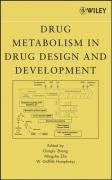

Why did formerly independent Chilean judges, trained under and appointed by democratic governments, facilitate and condone the illiberal, antidemocratic, and anti-legal policies of the Pinochet regime? Challenging the assumption that adjudication in non-democratic settings is fundamentally different and less puzzling than it is in democratic regimes, this 2007 book offers a longitudinal analysis of judicial behavior, demonstrating striking continuity in judicial performance across regimes in Chile. The work explores the relevance of judges' personal policy preferences, social class, and legal philosophy, but argues that institutional factors best explain the persistent failure of judges to take stands in defense of rights and rule of law principles. Specifically, the institutional structure and ideology of the Chilean judiciary, grounded in the ideal of judicial apoliticism, furnished judges with professional understandings and incentives that left them unequipped and disinclined to take stands in defense of liberal democratic principles, before, during, and after the authoritarian interlude.
具体描述
读后感
评分
评分
评分
评分
用户评价
相关图书
本站所有内容均为互联网搜索引擎提供的公开搜索信息,本站不存储任何数据与内容,任何内容与数据均与本站无关,如有需要请联系相关搜索引擎包括但不限于百度,google,bing,sogou 等
© 2025 book.wenda123.org All Rights Reserved. 图书目录大全 版权所有




















